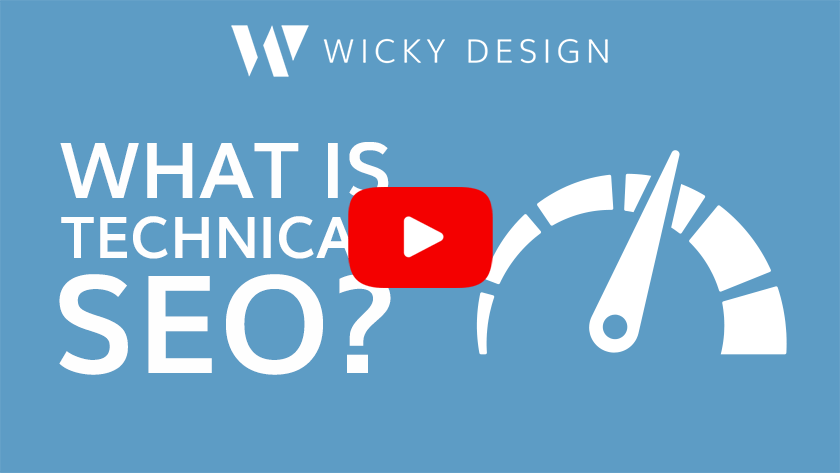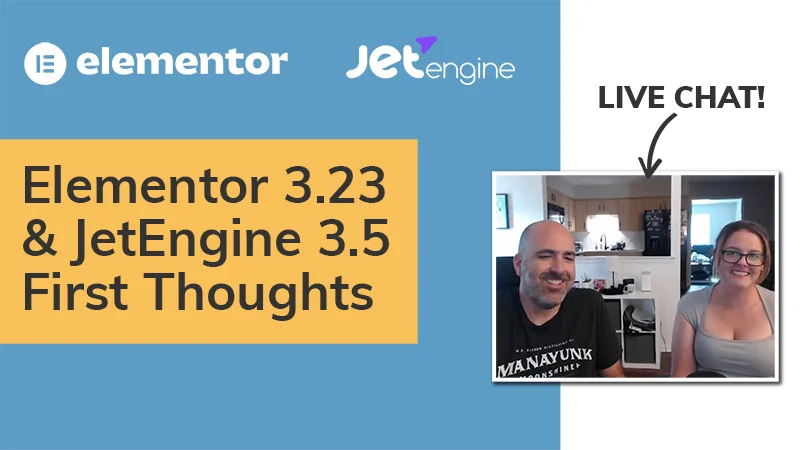SEO (search engine optimization) is a confusing subject for most people. Google is constantly changing their algorithm in order to provide their users a better experience. In fact, each year, Google changes its search algorithm around 500–600 times. Unless you work at Google, it’s impossible to keep up with all their changes, but there are things you can do to make sure your website is being seen.
SEO is a big part of our marketing strategy. Over the past few months, our focus has been Technical SEO, or improving the foundation of our website in order to provide our visitors with a better experience. The improvements we’ve made on the technical side have greatly improved our search rankings. Below we will give you a breakdown of Technical SEO, recommended WordPress plugins and some best practices for 2019.
First, Let’s Break Down SEO
The graphic below gives you a breakdown of the three main aspects of SEO: Technical, On Page and Off Page. Technical is the foundation of SEO and without it in place, the rest will fall apart.
Technical SEO focuses on 3 things:
- Website speed
- server configurations and
- mobile-first indexing.
This might sound easy, but it takes years of experience to cover all these techniques correctly.
You may already be familiar with the other aspects of SEO:
- On-page SEO – This includes important factors on your website like keywords, headings, meta titles & descriptions, and more.
- Off-page SEO – The main factor of Off-Page SEO is having inbound links from other websites.
How to Measure Technical SEO:
There are great tools we recommend for measuring your Technical SEO. We will show you results from our website Wicky Design. We want to show you our results so you can compare it to your website or better educate yourself on Technical SEO.
Google PageSpeed Insights – This tool might be the most important on our list, as it’s a great starting point to figure out what needs to be optimized on your website. The goal result is the green fast score! Don’t worry about trying to get a perfect score of 100. It’s very hard to get a 100 on mobile, this is because Google is using a throttling simulation for mobile.
Google released a major update to this tool in November 2018. It now uses Lighthouse as its analysis engine and also incorporates field data provided by the Chrome User Experience Report (CrUX). This upgrade is very important because Google will now use the results from Lighthouse across all their analytic systems.
We believe this website speed test is the most important because these scores are imported into your Google Analytics data. You can view the speed results on your indexed pages under the menu Behavior > Site Speed > Speed Suggestions. You can learn more about this by reading their Analytics Help.
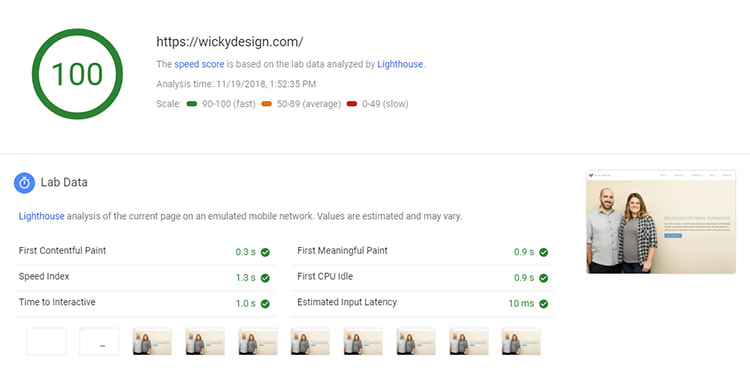
Chrome Lighthouse Audit – This tool is very common to the updated Google PageSpeed Insights tool. The best thing is it’s built into your latest Chrome browser! The major difference between these 2 tools is the ability to control the throttling speed. To access it load up your website and right click in the browser and select “Inspect”, this will pull up a developer interface, find the button called “Audits”. Select your options and run the audit. It will display the following scores; Performance, Accessibility, Best Practices and SEO.
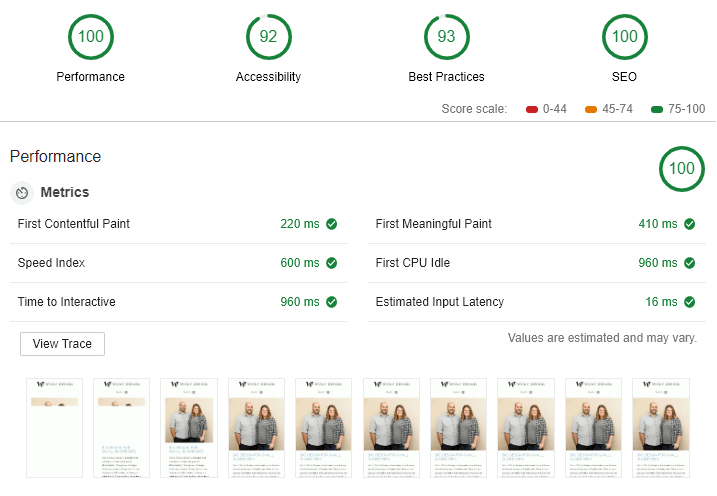
You may have noticed that our 2 main tools are all Google related! This was done on purpose, we noticed a huge jump in our SEO when we started to increase our scores on these tools.
Here’s a list of other great online website speed tests you can run on your website. A load time under 3 seconds is key. We try to aim for load times under 1 second. This will vary depending where the website is hosted and your location.
Recommended WordPress Plugins
All in One SEO Pack – We highly recommend using an SEO plugin to help with your on-page content, social media & XML sitemaps. We found this plugin to be the most useful for us when compared to the other WordPress SEO plugins. One the biggest advantages of All in One SEO is it allows you to easily import/export all your data without having to purchase a pro account.
Cache Enabler – We have tested tons of caching plugins and have finally come across a great lightweight solution. We combine Cache Enabler & Autoptimize. These 2 tools work perfectly together. We love Cache Enabler because it’s simple and doesn’t overwhelm you with tons of useless settings. One of the biggest advantages of Cache Enabler is that it doesn’t hijack your .htaccess file. I’ve had several caching plugins give me the white screen of death because their script corrupted the .htaccess file. As you may know the .htaccess file on your website is one of the most important files. If the .htaccess isn’t correct, the whole website breaks.
Take a look at the screenshot below, this is how simple a caching plugin should be! There isn’t tons of settings that needs to be configured. This plugin simply converts your pages to a static HTML files and stores them on your server. This eliminates the need to process heavy server resources.
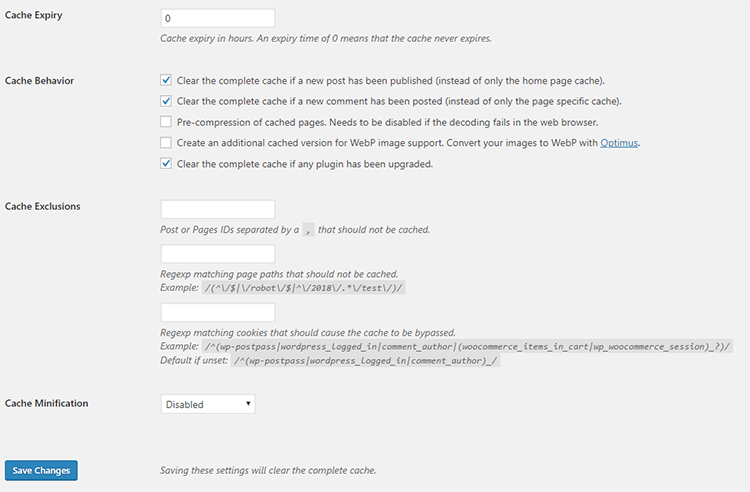
Autoptimize – Similar to Cache Enabler this plugin doesn’t overwhelm the user with too many settings. This plugin helps by minifying and compressing your scripts and styles. It then places the cached code into your page header. It also minifies the HTML code itself, this makes your page very lightweight.
a3 Lazy Load – The updated Google PageSpeed Insights tool started to deduct points for loading images off screen. This is sometimes called “Defer offscreen images”. This lazy loading plugin will help only load assets when the user scrolls down the page. This is very helpful to score well on mobile speed tests. We only recommend using lazy loading for images and videos.
Server Recommendations
In order to get these high scores, it requires server configuration changes. Below are a few important server configurations that need to be configured.
HTTP/2 – Using HTTP/2 is key on a server. It allows more server requests simultaneously to happen when you load a website. This means faster load times on both the server and client machines. HTTP/2 is the first new version of HTTP since HTTP 1.1, which was standardized in 1997.
PHP 7.2 – If you’re running a server with PHP it’s very important to stay current on the latest releases. Not only is it important for security but you can gain a speed performance. The latest version of PHP is 7.2. If your hosting company doesn’t offer the latest versions of PHP, it’s time to leave that hosting company. Here’s a link to view the currently supported PHP versions. One of the biggest speed boost you will see is if you’re upgrading from PHP 5 to PHP 7.
HTTPs – You may have noticed more websites using HTTPS. One of the main reasons more websites have started to use HTTPS is because Chrome now displays a “Not secure” in the URL bar if your website isn’t using HTTPS. Updating an old website to HTTPS can sometimes be a challenge but the benefits are huge! When using HTTPS your traffic is now more secure and google has hinted that using HTTPS can have a small ranking boost.
Enabling SSL is normally done on the web server. It’s possible to use a third party like Cloudflare and have them manage the SSL. But we recommend having your SSL installed on the server your website is being hosted. We are big fans of Let’s Encrypt, we have it installed on our server and use it for all of our clients.
Gzip – Gzip is a great server-side tool that helps compress your website files. This will help with page load times and give you a higher score with all the website speed test tools. This is the easiest thing to enable on our list. If you have cPanel as your server control panel, it’s very easy to activate this module. Enable Gzip on cPanel.
Conclusion
SEO has changed a lot in the past few years and technical SEO isn’t going anywhere. We are really excited to offer our technical SEO services to our web design clients. We know that offering this service is going to help our clients businesses grow and succeed.
Technical SEO should be a focus of your overall SEO and marketing strategy. Whether you have an existing website or are building something brand new, having a strong foundation is key. Want more information on Technical SEO? Contact us today.
